Article Contributed by David Atchley
Published on April 21, 2018
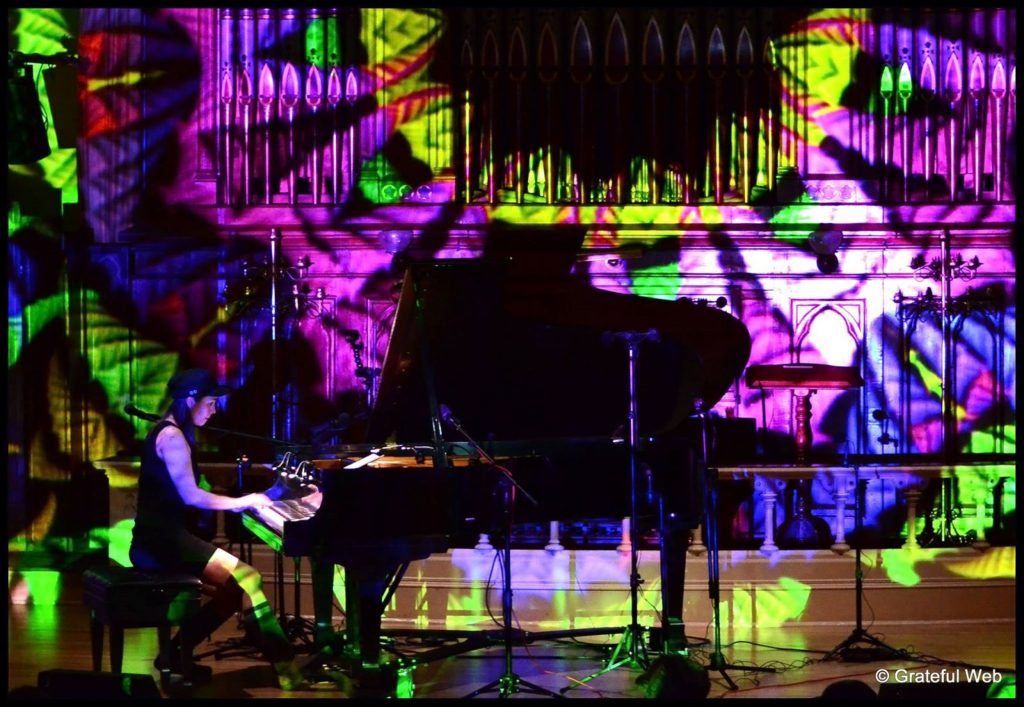
Mood and muse, two inexplicably intertwined elements of an ethereal nature, yet their power to move both body and mind know no bounds. Flowing throughout the in-between like gravity and wind, these forces are foundational and creative to the many worlds that arise out of the relationship of things, out of the happenings originated by togetherness; a place born betwixt seed and light, lung and tree, heart and rhythm, a place where all things come together to form each thing (each moment) throughout all size and time. And where all things come together-so too, does mood and muse.
Occasionally, the infinite conditions of being align in just such a way they take the form of a unique and rare person, or swirl assorted people, times and places into an unparalleled counter-culture, growing like ivy across the landscape. Where and how will the flowers bloom? What petals will take us back to that place of metaphorical understanding, where just the joy of being is enough, and dancing to the rhythms of the day is life? What nourishment will we each offer and draw from the garden?
Holly Bowling, sprouted in rich Dead soil, nurtured by love, and brought to light through a spectacular smattering of events that transcends generations, enriches the life of any whom hear her story or listen to her play. Her love of life and music is glowingly apparent in everything she does, in everyone she touches, whereby we can’t help but feel honored to have her upon our stages or revel in the joy of her vibrations.
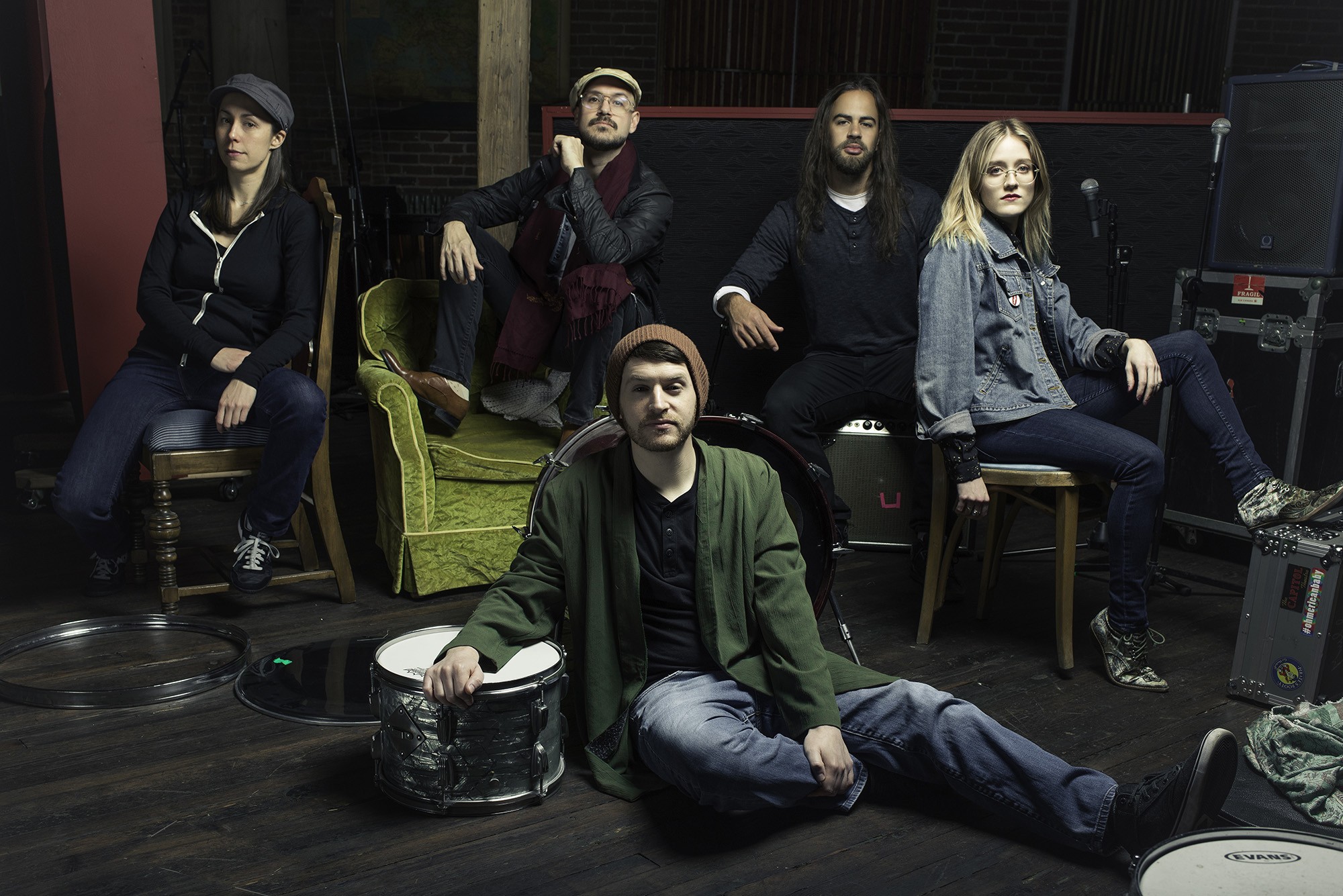
Grateful Web recently had a chance to chat with Holly, about family, education, love, music, and her new band, Ghost Light.
GW: Well, Holly, I must say, as a Deadhead parent to a musician son, I can only imagine what your parents must be feeling watching their daughter jump up on the stages and be received as you have been. I’m sure they were blown away the first time you told them you would be playing with Bob Weir and Phil Lesh.
HB: Oh, man, my parents are the best. They raised me listening to the Dead. My parents are the reason I’m aware of the Dead’s music at all. They really set me on my musical journey, and they’ve been behind me every step of the way. They’re super psyched about it. My mom’s a teacher, so she can’t get away very much, but my dad is always trying to make it to as many shows as he can. He came out and saw a show at Terrapin when I was playing, and he seemed pretty super happy, and I got to introduce them, (Bob and Phil) and my dad didn’t even know what to say. (laughs) I did this gig out here in California, with Phil and Bob, and both my parents came out, and uh . . . yeah, I just got really lucky in the parent department.
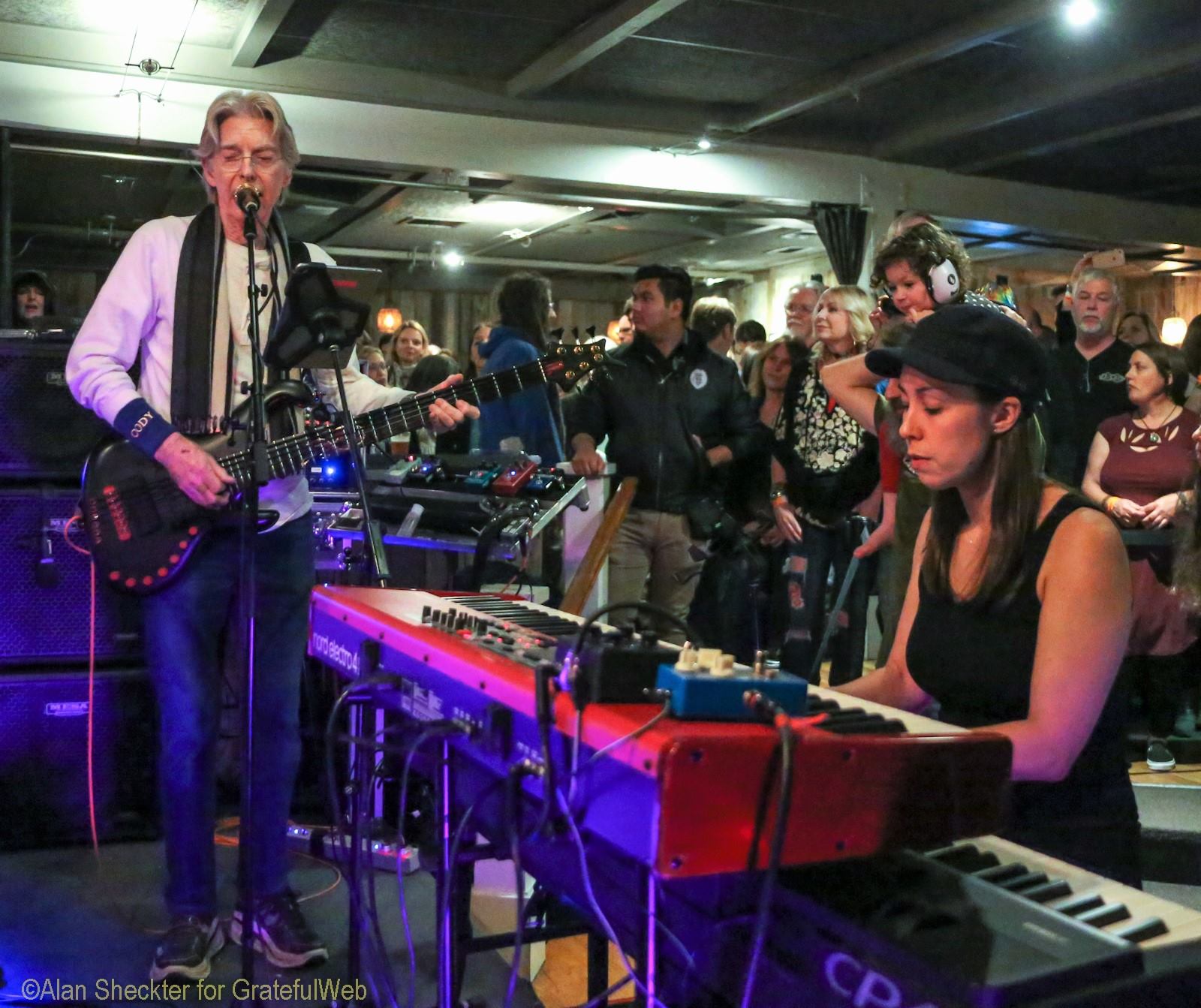
GW: I understand you studied music under Shinichi Suzuki’s method. I’m curious about the effects it had on you as a person, as well as in music.
HB: You know, it’s kind of hard to say because I started playing Suzuki, (the piano in general) when I was five. I never learned it any other way, so it’s really as long as I can remember. So, to try to separate out how that affected me from that early on is kind of hard, because I’ve never known it any other way. But I can say this, I taught Suzuki for years, later, and so going through it from the other angle and really picking apart what the Suzuki method is at its core, gave me a little more insight into that, and I feel like the biggest thing is it’s not just an emphasis on what you can play, and the technique and the difficulty of what you can accomplish, it’s really about developing a sensitivity-musically going hand in hand with that emotional sensitivity-which carries over into the rest of your life . . . and I feel like it builds that connection and sensitivity to other people. That’s how you communicate through music-if you’re not emotionally invested in being very sensitive to what’s going on around you, and what’s happening in the music, it’s going to be dead, lifeless and empty. So, I think that sensitivity to the world around you, and to people, is necessary to be a good musician, and I feel like with the Suzuki method, that’s kind of at its core just as much as any other part of the approaches.
GW: The first time I saw you, you were playing with Greensky, and I think it was that sensitivity to them, the crowd, the music, and all that was happening, that caught my attention. How do you take that sensitivity into your transcriptions? How do you derive that kind of emotion when transcribing such intricate performances?
HB: The transcription is more a process for me-getting to learn each player, you get to know each player’s style more in depth when you’re transcribing and spending that much time with any one piece of music. It was also a good lesson in what the music is saying versus the actual nuts and bolts of how it’s saying it-like picking apart the notes and the rhythms and everything, you can be a hundred percent accurate with all that stuff and still miss the point. A computer could probably do that work, and it would sound like it didn’t mean anything. So, the biggest challenge for me, the biggest thing I learned from it was sometimes you don’t play all the same notes, or sometimes you leave things out, or you add something. It’s about trying to get the message across at what the music was saying at its core, at the heart of the thing, than it’s about replicating note for note what was going on. That doesn’t mean I don’t get hung up on accuracy, I love that puzzle aspect of it, but if that’s getting in the way of the point of the thing, then you have to leave it behind.
GW: Listen to what I mean, not what I say?
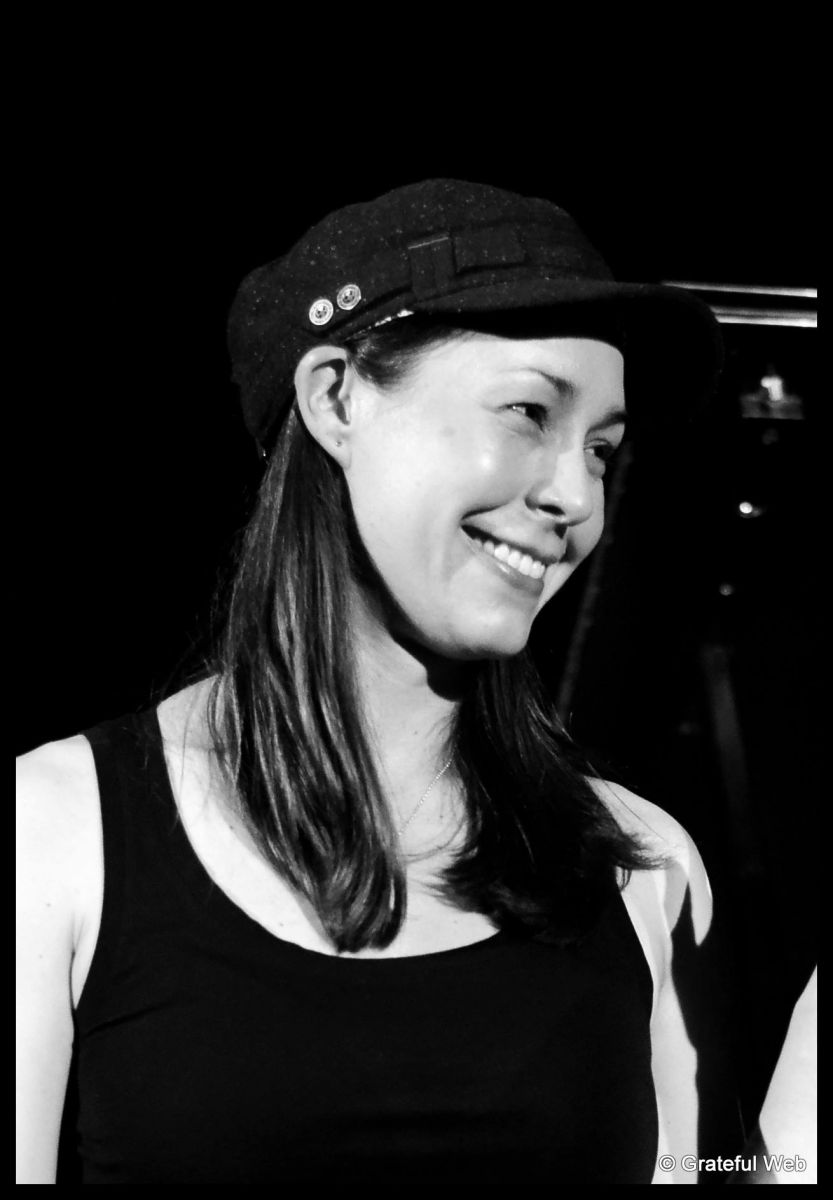
HB: Yeah, you want to move in respect to the original piece of music, especially if you’re arranging something in a different context than what it was originally. If you play all the notes that were happening in four or five or six band members, you’re going to end up with something on the piano that does not convey the emotion that it should be conveying at all. That’s where the personal choices come in.
GW: I suppose each night is different, each performance is different in that way, too, depending on your mood, the crowd’s mood, all the infinite conditions that come together every night.
HB: Oh, for sure, and in some of those things I’m doing transcription, so I’m actually trying to create an actual live performance I thought was particularly good. But other arrangements of mine are much looser, a lot of room for freedom, and a lot of interpretation each night, and long stretches of improvisation. So that stuff is entirely going to change depending on how I’m feeling.
GW: How much coffee you’ve had? (laughter)
HB: (laughter) Yeah, how much coffee I’ve had. What happened that day in the world. It all comes to play.
GW: You had quite the rise to notoriety, seemed like it was kind of quick. What have you learn about yourself in the process of it?
HB: Oh man. Yeah, I don’t know how much I can dive into that because I’m constantly learning things about myself through this process, but I think that would be the case anywhere. I mean, I guess, the biggest thing is like this opportunity did present itself pretty suddenly to me, and I made a choice to go after it with everything I had when the door opened. I guess the big lesson in general throughout this thing has been, whenever you have the decision you can keep doing the thing you’re doing, and it’s safe, and it’s good enough, and you could be successful at that, do that thing and it’s a sure thing . . . Or, you could go jump off this cliff and take a risk and try something new, and it’s probably going to be really hard, but it could be amazing-I’ve really tried to take that avenue each time, like as soon as things start to get comfortable, I try to do whatever the next thing is to keep pushing forward, keep finding a way to challenge myself. So, that’s not really something I learned about myself, but it’s something that I keep pushing to do in general.
GW: Your husband is an intricate part of this as well. How does working together so intimately enhance your relationship?
HB: Oh yeah, man, he’s my tour manager. He also does this whole projection show behind me that reacts to what I’m playing. He’s built this whole thing from the ground up, so he’s more than just my TM. He’s been an integral part of this whole thing from the beginning. It’s cool. Sometimes it comes with its set of challenges, your work, and your relationship is one and the same, but it’s a lot easier in some ways. Being on the road is a big strain on a relationship, and often just being that invested in anything you’re doing can also be a strain if you’re not both in it, and so if you’re going after something a hundred and ten percent, it’s nice to have the person along for the ride. (laughter) Be on the same train.
GW: Well, then, I guess I’ll take this train into the Ghost light scene by first asking, (laughter) will you still be doing your solo stuff while taking part in a band?
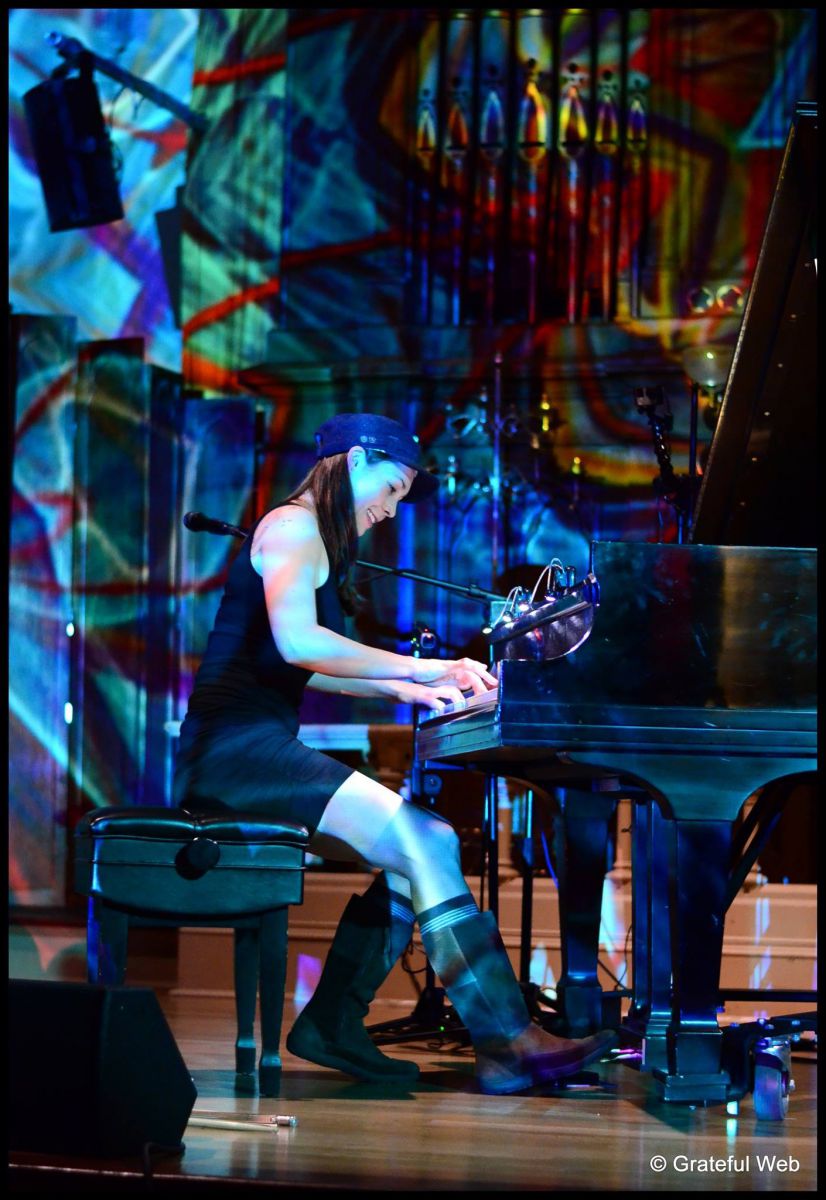
HB: Yeah, I’m not going to leave that behind. I’m putting it on pause for the moment because I really want to give my all to this band. I don’t want to be dividing my time and half-assing anything right now, so I’m really focusing on Ghost Light for the time being, but I can’t see giving up the solo thing. It’s a different type of freedom and a different type of improvisation when it’s just you. I’m excited to have a counter balance to that-when you’re listening to others and playing off what they’re bringing to the table-but the solo thing will return. It’s just on pause for a minute.
GW: Speaking of counter-balance, I watched you and Tom play an “Eyes” back in October that was just smoking, and it made me wonder, when was that moment-you’ve met Tom, you’ve played together a few times-when was it that you go, “We should do a band?”
HB: (laughs) You know, we played together a bunch of times last year, and every time we really enjoyed it. Sometime around last fall, we started talking like, “Hey, maybe we should form a band,” rather than it being like playing together whenever we happened to be at the same festival, or we’re in the same town on the same night. Rather than when the stars align . . . Like, “Hey, let’s make things align,” you know. (laughs)
GW: Sounds as if you guys challenge each other?
HB: Yeah, absolutely. Everyone in the band is challenging each other one way or another. Everyone has really different strengths, which is cool to feel like we’re all bringing something in, we’re all learning from each other. Tom’s an incredible listener. It’s hard to find people to improvise with that right off the bat you can go off the deep end, or make one little hint at a change and you hear they’re right there next to you. It’s not a struggle to push, like, “Are you hearing me? Are you hearing me?” You’re right there, and that gives you a freedom and a sense of musical connection that I think really spoke to both of us, I know it really did to me.
GW: Are you writing original material? I hear you have this album going on at the same time as your introductory tour. Are different people bringing songs in?
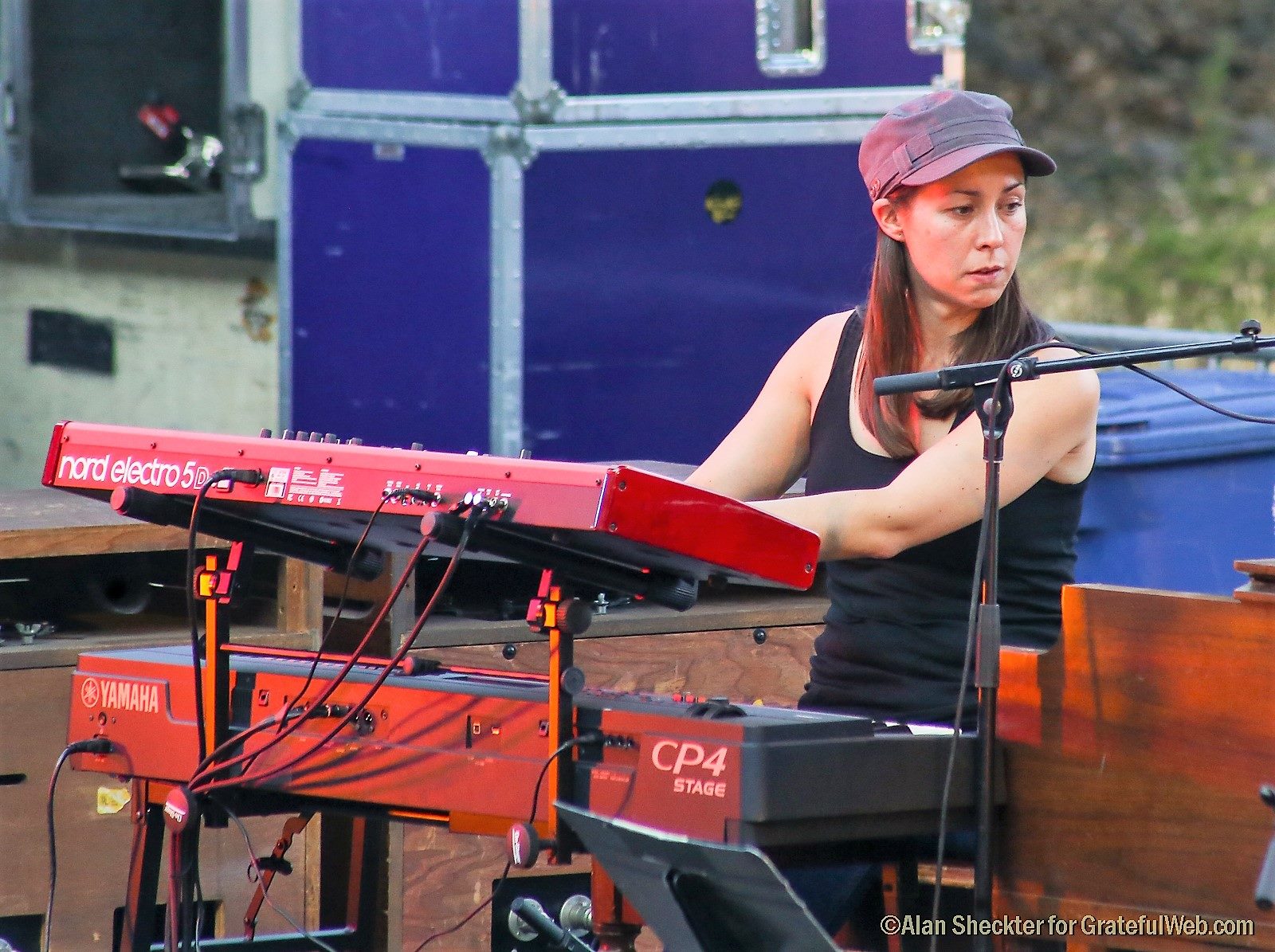
HB: Yeah, this is an original project. It’s been really cool. We put this thing together, and we’ve been preparing to tour and working on an album at the same time, so we’re kind of coming at it on all fronts, and it’s coalescing and changing rapidly, which is really, really cool to see the pieces start to fall into place here. Everybody is involved in the writing process. Some tunes come into the studio, or rehearsal with all of us fully formed, and we’re kind of showing each other what we want to happen in one place or another, and other stuff is coming in like a little seed of an idea, and then it’s in how we build something together, which has been a really interesting way to get to know each person musically because, well, we’re a new band. (laughs) And this is how we get through this process.
GW: Do you have enough material to cover an entire tour?
HB: Oh, yeah, yeah, we got enough material to fill a whole show, and we have enough material to keep the nights different. We’re not looking to go out there and play the same set every night in a row (laughs) in the same order, just like replicate the same thing night after night on this tour at all. It’s not really what any of us do. Ever. (chuckles) And we’re not looking to do that here either.
GW: I’m really excited to see what you guys end up putting together. I can only write about music that offers me the words from the listening. That’s why I liked Jerry so much, he gave us all so many words from the listening, and you were like that for me. I think in the Dead family, we’ve perhaps become a little spoiled, and really expect our music to take us somewhere. What can we as a listener expect from you guys?
HB: I’m hesitant to put too many words to the music because I want you to hear it, and see where it takes you. But I will say-you mention how you want the music to take you somewhere, that you expect that out of your music-we’re all growing out of a similar aesthetic here, we all want that, too. And if that’s what I want as a performer and a musician, and that’s what I’m chasing after . . . That’s got to translate (laughs) that’s gotta translate. So, I think you’re safe in that regard. (laughter) I can safely say, it’ll take you somewhere.
GW: (laughter) Well, there we go. We have something to work with anyway. Is this looking like a long-term project?
HB: Yeah, this isn’t a one-off thing where we’re going to do a tour this spring and call it. This is definitely something we’re committed to, and it’s going to be around for a while. This is step one; this is the beginning of this thing; this tour is not the beginning, the middle, and the end. This is a thing being born, right now.
GW: Sounds very fluid, very growing and changing. That’s what’s so awesome and inspiring about your story, your music because you’re playing from that place. What’s happened in your life can seem miraculous, destined, being a part of life swirling to form, and have all that coming out of you musically for us to hear and participate in makes everything you have going very exciting.
HB: Yes, I’m definitely excited about it. It’s interesting too like we’re all people that are coming from a place of music we listen to-we’re talking music with a heavy dose of improvisation and capacity for risk-taking-but that’s not the only influence playing into what we’re doing here. One thing I think is really cool and really different about this is that my primary canvas the last few years has been on an acoustic instrument, just a solo, stripped-down acoustic piano, and that’s not what I’m going to be doing here, primarily, but I think that there still is going to be a sensitivity and aesthetic there that comes with that. And Tom, as much as he absolutely plays on the electric guitar, he’s done a lot of acoustic stuff as well-and if you listen to his past records there’s some of that vibe there for sure-and so I think we have that sensitivity and that background that we’re bringing to a band that is energetic and electric and has this whole other thing happening there, but the stuff from before is still present as well. So, I think there’s sort of layers to this thing that’ll show themselves in interesting ways.
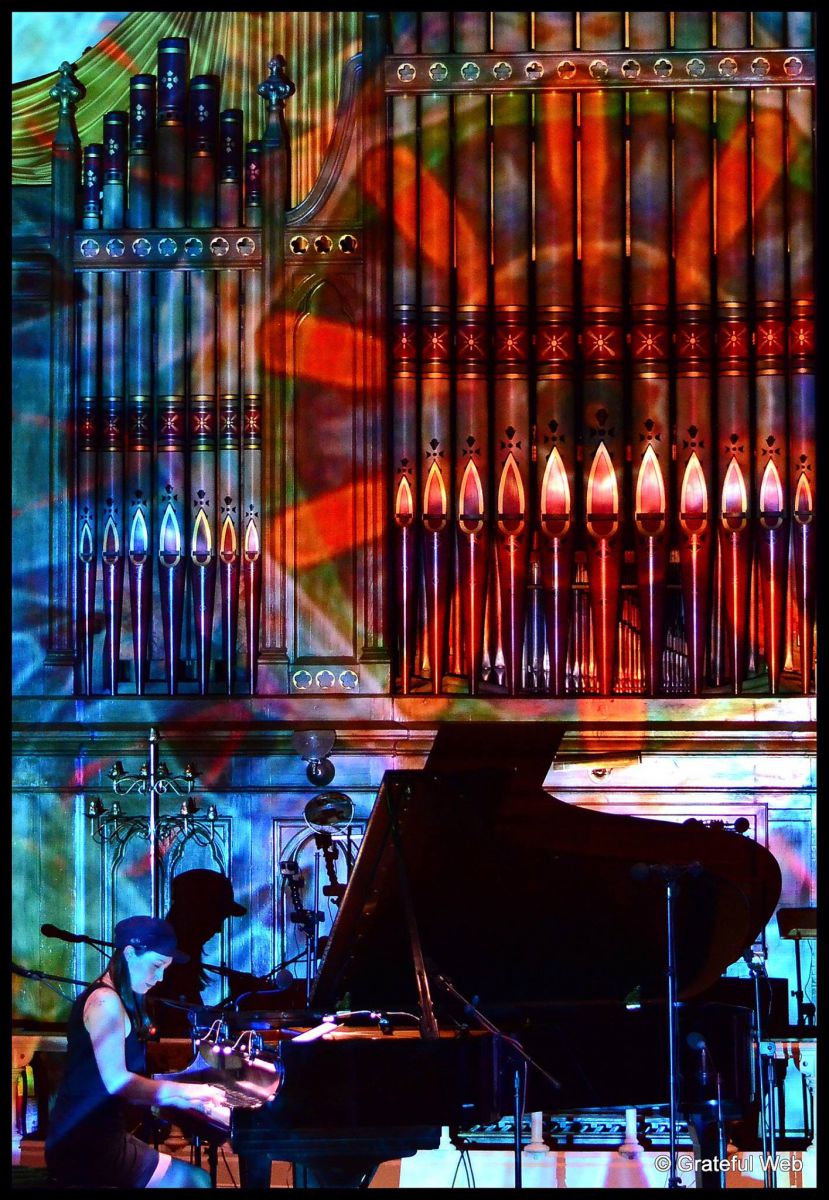
GW: That is exciting. So we’re looking at something original?
HB: It’s hard to talk about art in any form. The best way to understand it is not to describe it with words like you don’t want to enjoy a meal by having someone write to you about the flavors you’re going to experience. You just want to eat it. (laughs) That’s why I’m hesitant to explain too much, like, “So, what should we expect from the band musically?” Well, I’d really just love for you to hear it, and we’ll be out on the road, and it’s going to be there. (laughs) Yeah, so I hope I’ve painted around the corners of it enough for you to describe the general idea of where it’s going.
GW: Your story seems to be kind of rare, but at the same time, what do you tell the teenagers that want to follow suit? Is there any kind of leanings or encouragements you would give?
HB: I guess my one piece of advice here is, the way I got where I am right now was not . . . It was something I always wanted to do . . . but when I did the thing that was the thing that gave me my break and opened all these doors, I wasn’t doing it because I was like, “This is going to be the thing that’s going to give me my break.” I was doing it because I loved it, and I was doing it for me, and I had no other stuff attached to it. And that’s not to say you can’t have ambition and stuff attached to what you’re doing, but I think when your heart is really in it, and you’re doing the thing that speaks to you and feels good to you, that resonates with other people, that’s really powerful. And you know, at the end of the day, if you’re doing the thing, and you love it, and you’re happy with it, then regardless of where it goes, it’s still going to mean something to you and it’s still going to be successful. Keeping that priority straight is the best piece of advice I can give.
GW: When the motivations are true and genuine, they take you to true and genuine places. It’s funny you say that because my wife and I have a tendency not to make our decisions based on money, and that seems to throw everyone off. (laughter)
HB: (laughter) Oh yeah, they don’t love that. Yeah, it’s always a balance. You got to eat, but uh . . . You got to keep those priorities in line.
GW: Is there anything, in particular, you’d like to say about Ghost Light?
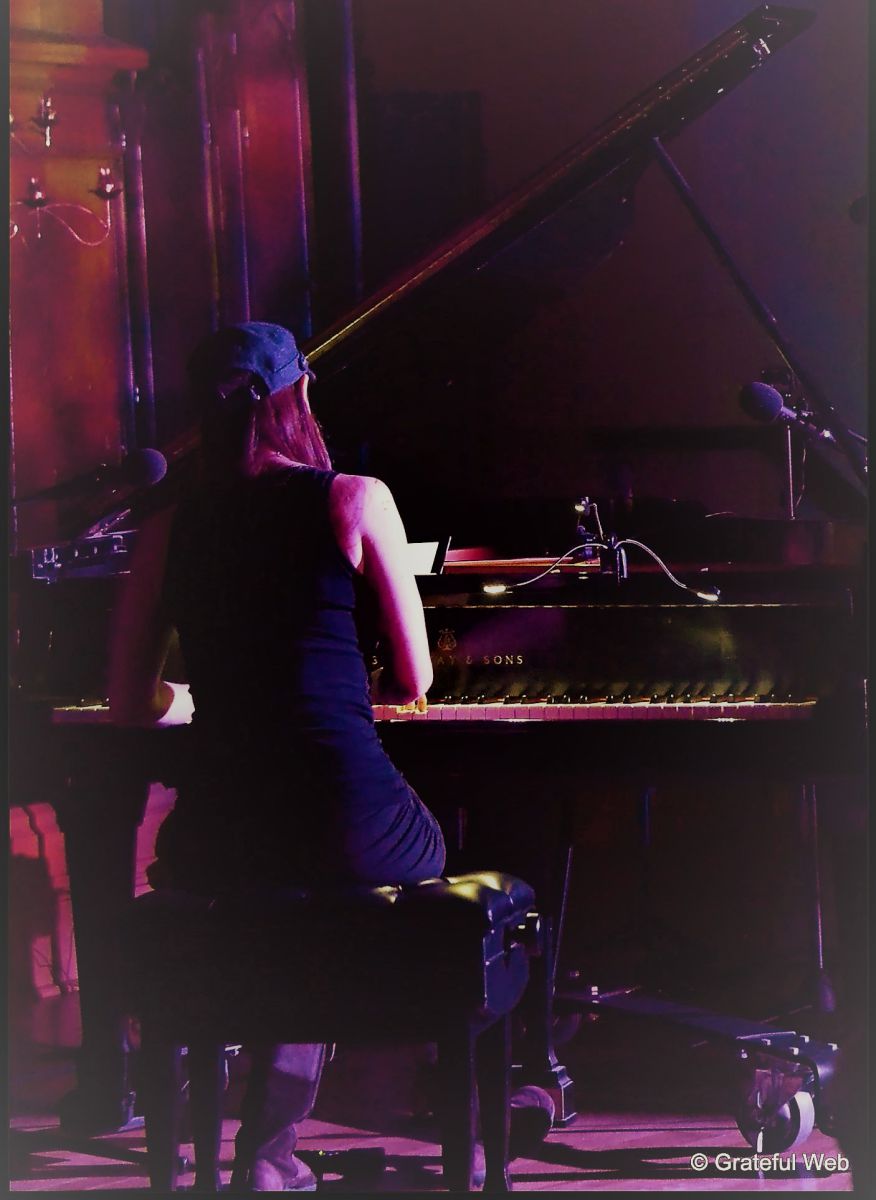
HB: I’m just so excited. I’m excited for you to hear it. I’m excited for everyone to hear it. We’ve been working on this stuff in the studio with just us in the room, and I’m so excited to take it out there on the road and share it with people. And also, just like the energy that comes into that stuff when it’s not just the band in the room, but the back and forth between the audience and performers, and everyone in the room together, doing the thing together, I think that’s going to bring a whole other element to this music we haven’t let it go into yet. I’m excited for the additional conduit and spark and energy that’s going to bring to it. I just can’t wait.
GW: You sound like a little girl with a happy secret she gets to tell soon.
HB: Oh man, I mean, I’m excited. I have the best job in the world. How could you not be excited about going out and playing music with people you like playing music with? It’s pretty great. (laughter)
GW: It’s nice to see happy people.
HB: Yeah, we got to keep that going around.
GW: Don’t want to forget we’re riding on a rock in space.
HB: (laughter) True story. True story.
GW: So, album next fall.
HB: It should be out in fall. It’s still in progress right now, so, we want to take the time to really get it exactly the way we want it.
GW: Sounds great. Look forward to seeing you out on the circuit and catching how the music develops. It’s been fun, Holly. Thank you for spending some time with us.
HB: Thank you.
“Let’s see with our heart these things our eyes have seen, and know the truth must still lie somewhere in between.”